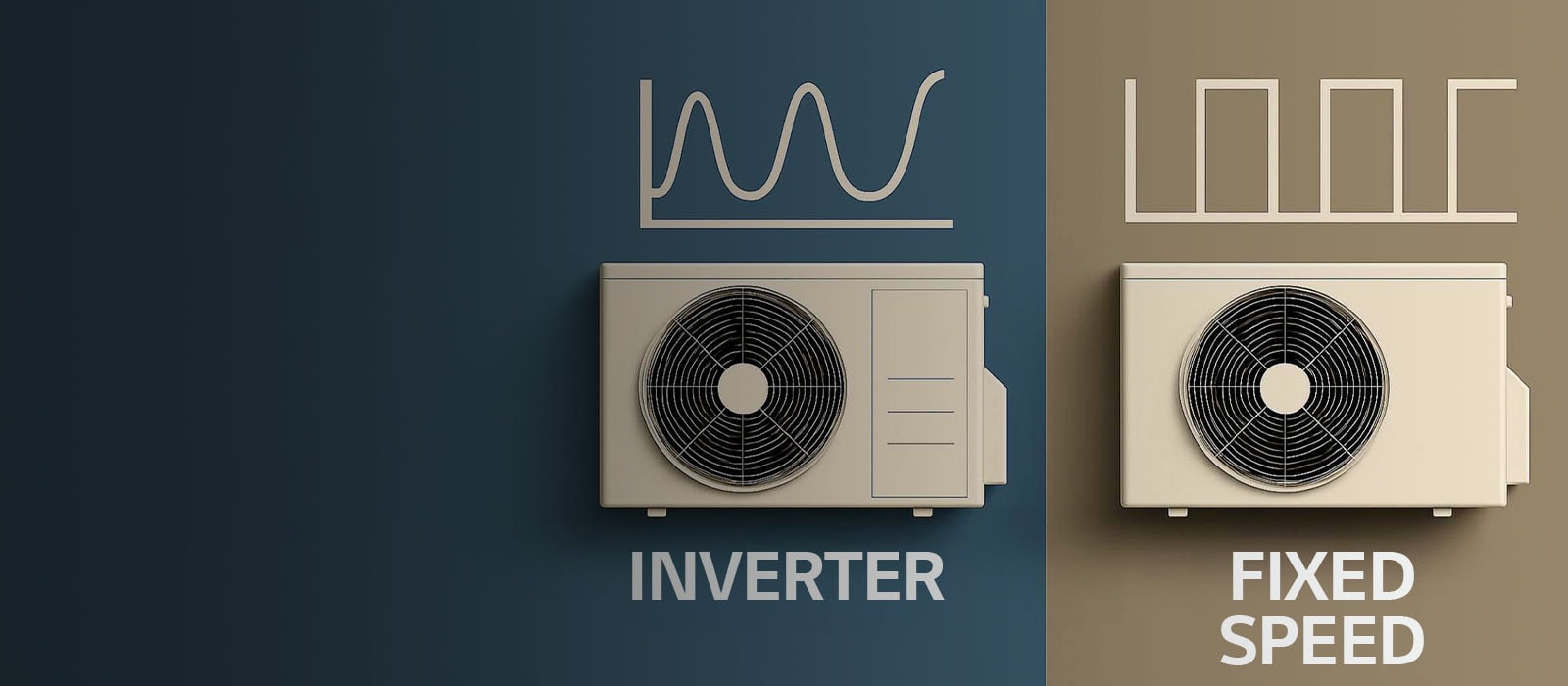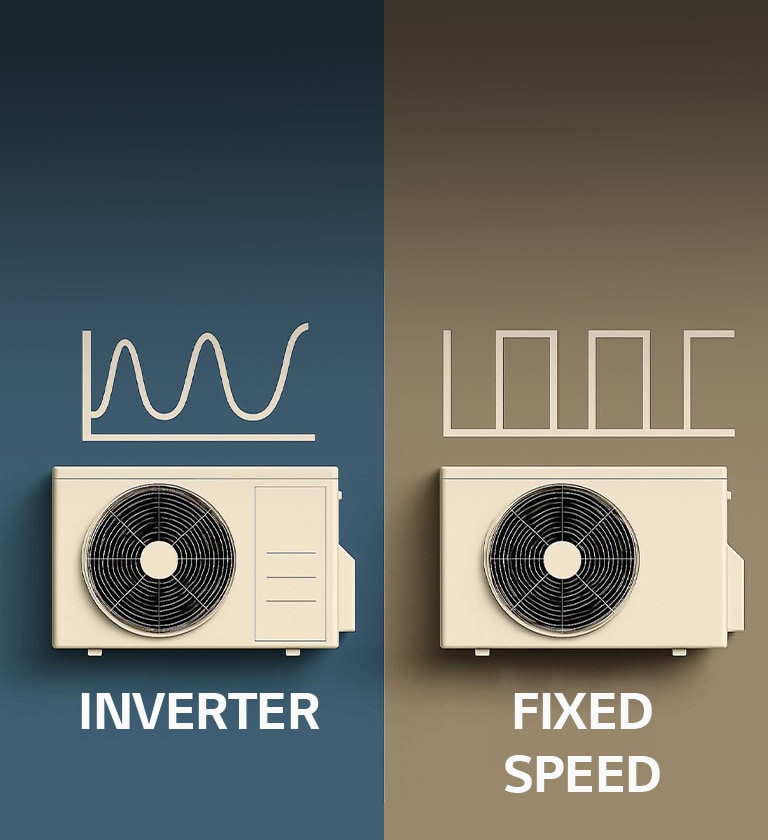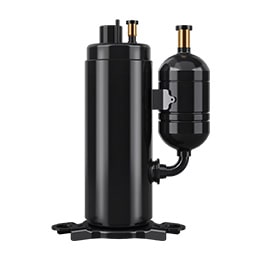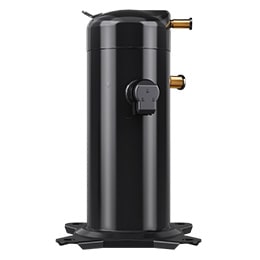-
*The image above is for illustrative purposes and was generated using AI tools.
Choosing the right compressor in modern air conditioning and refrigeration systems is crucial for ensuring reliability, energy efficiency, and quiet operation. As the core component of any HVAC system, the compressor plays a vital role in circulating refrigerant and maintaining precise temperature control. With increasing concerns over energy consumption, understanding the differences between various compressor technologies is essential for making informed decisions that impact both system performance and long-term operational costs.

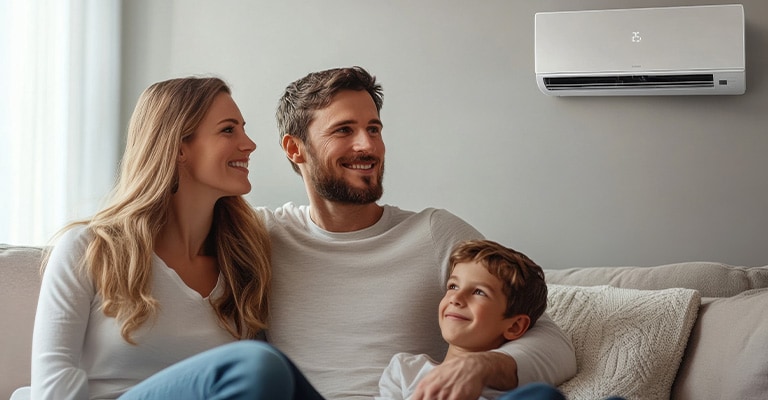
-
Understanding the Technology Difference
The fundamental distinction between an inverter and a fixed-speed air conditioner lies in their compressor operation. A fixed-speed compressor operates at a constant speed, providing efficient compression but lacking the ability to modulate its capacity based on the cooling or heating load at any given moment. This type of compressor can only be switched on or off as the load demands, which means it cannot adjust its energy use according to ambient temperature, leading to less efficient energy consumption overall.
In contrast, inverter air conditioners use variable-speed compressors that can adjust their speed according to the system’s cooling or heating requirements.This allows the compressor to continuously modulate its speed in response to real-time cooling or heating demands. Inverter technology regulates the frequency of the power supplied to the compressor motor, enabling precise control over compressor speed and, consequently, the system's capacity.

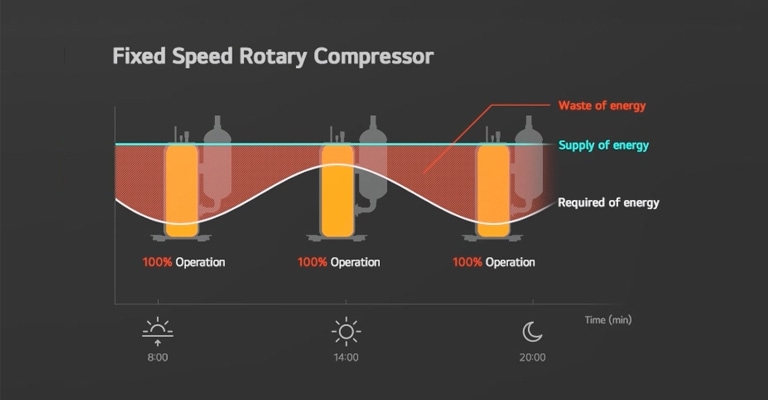
-
Energy Efficiency and Performance
Inverter types feature a variable speed compressor. Instead of maintaining a fixed speed, they adjust the compressor rotation to either low speed or high speed based on the desired indoor temperature. Once the indoor temperature reaches the target level, fixed speed units turn the compressor off. However, inverter types adjust the rotation to low speed. By maintaining the indoor temperature at the desired level with a lower rotation speed, inverter types are more efficient than fixed speed units.
Variable-speed or inverter air conditioners are more effective in part-load conditions than regular constant-speed air conditioners when serving a cooling load below their rated capacity. When operating with adjustable rotation speed, inverter types are more efficient than fixed speed types, especially when energy consumption exceeds demand.
Inverter systems provide more stable and balanced cooling compared to fixed-speed units. The variable-speed operation allows for faster initial cooling, stable room temperature maintenance, reduced energy consumption, and decreased wear and tear on components. This results in rooms staying more consistently at the desired target temperature, minimizing the temperature variations that can occur with traditional fixed-speed units.

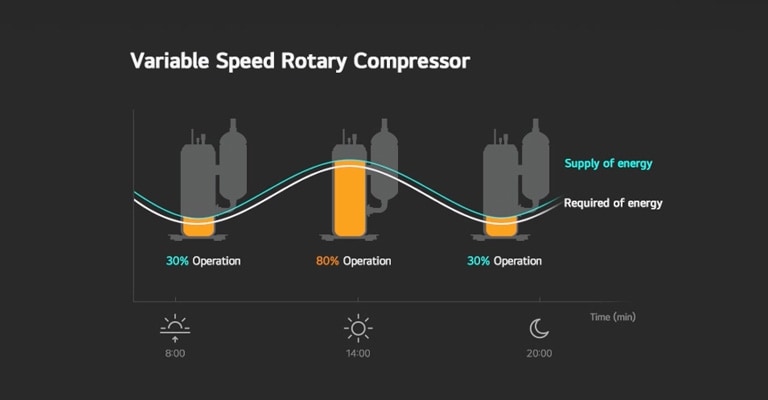
-
Nature’s Impact and Long-Term Responsibility
Air Conditioning systems may be associated with higher energy use. However, inverter air conditioning systems offer significant improvements in terms of energy efficiency and reduced impacts on the surroundings. Inverter air conditioners operate efficiently, minimizing energy loss. The use of inverter air conditioning systems, especially when combined with government incentive measures and proper installation and maintenance practices, can offer significant benefits in terms of energy efficiency and reduced impacts on the surroundings. With the expected growth of air conditioner use and rising ambient temperatures, inverter technology can significantly contribute to reducing peak demand and energy use.


-
Benefits of Quiet Operation
Traditional systems cycle on and off at full power, which can lead to noticeable noise during each start and stop. In contrast, inverter compressors, after reaching the target temperature, operate at a low rotation speed (RPS) to maintain the desired temperature, helping to reduce noise levels. This steady operation makes inverter units well-suited for environments where noise reduction is important, such as bedrooms and offices.
-
Cost Consideration and Long-Term Value
Inverter air conditioners typically come with a higher initial price tag compared to fixed-speed models, but they can potentially offer cost savings over time through reduced energy bills, which may justify the investment for many consumers. These efficiency gains can contribute to lower electricity costs, making inverter systems a potentially cost-effective option for both residential and commercial settings. In contrast, fixed-speed units may appeal to cost-conscious buyers due to their lower upfront price, but they may result in higher cumulative energy costs over the lifespan of the unit, which could offset these initial savings.
-
Maintenance Requirements
Both fixed-speed and inverter units require regular maintenance to ensure optimal performance. Fixed-speed units, however, may have simpler and less expensive maintenance needs due to their basic on/off operation. Inverter units, with their complex mechanisms, may require more specialized maintenance and repairs, potentially increasing the cost of upkeep. The energy efficiency of an inverter air conditioning system depends on proper installation and maintenance, requiring correct sizing for the space and regular maintenance programs to ensure efficient operation.
-
Making the Right Choice
When deciding between inverter and non-inverter systems, several practical factors must be considered. In markets where fixed-speed air conditioners remain popular due to their lower initial cost and simpler design, consumers might lean toward these units despite their higher energy consumption over time. On the other hand, in regions or settings where energy savings and environmental performance are top priorities, inverter systems are often the preferred choice. It is also important to consider maintenance and operational costs, as well as installation scenarios, all of which play a role in making the most suitable choice.
LG's Compressor & Motor Division is committed to proposing tailored solutions that respond to the unique demands of each customer and setting. LG's lineup of fixed and variable speed compressors ensures that customers can find a model that fits their needs.

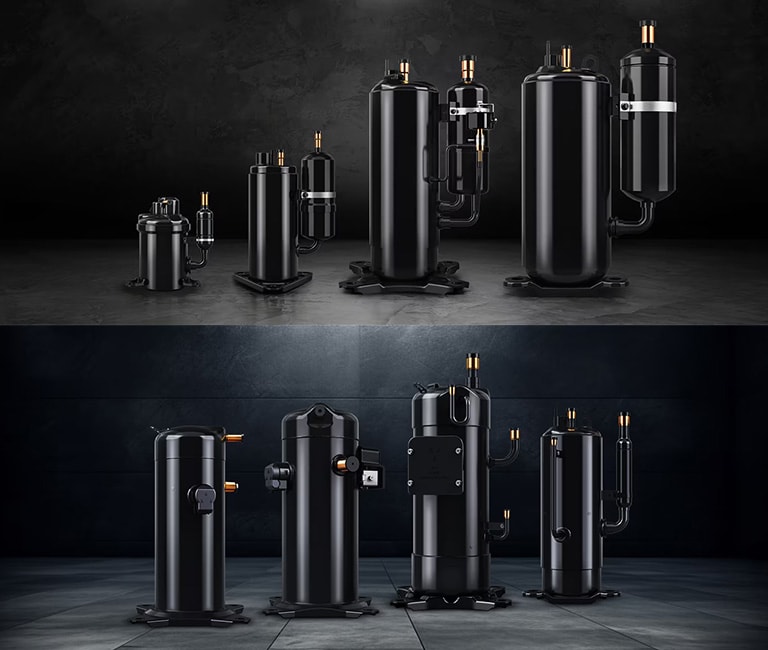
-
Conclusion
In conclusion, understanding the key differences between inverter and non-inverter air conditioners is essential for anyone looking to invest in a modern, efficient cooling system. By considering energy efficiency, cost, maintenance, and impact on the surroundings, and by exploring the solutions available in the market, consumers can confidently select the air conditioner that suits their lifestyle or business.
-
"The information contained in the article is released by LG Electronics and may not be used for personal work. It may not be copied, reproduced, modified, decompiled, or reverse-engineered into any other work without prior permission from LG Electronics."
-
*Products and solutions may vary according to country and operating conditions.
Please click the 'INQUIRY TO BUY' banner below to contact LG Sales Team for further information on solutions and products.



